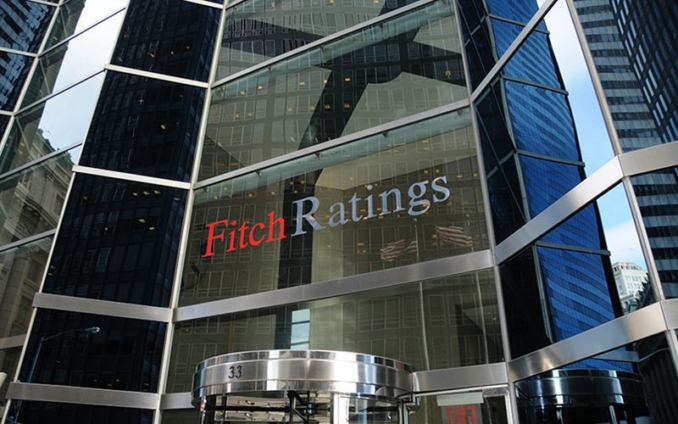International ratings agency, Fitch Ratings, has upgraded Ghana's Long-Term (LT) Local-Currency (LC) Issuer Default Rating (IDR) to 'CCC' from 'RD'.
The upgrade of the ratings on Ghana's LC denominated debt follows the completion of the Domestic Debt Exchange Programme by Ghana in February 2023.
Fitch, however, viewed the transaction as a distressed debt exchange in a context of heightened fiscal pressures, with interest costs amounting to 54% of revenues in half-year 2022, and lack of access to international capital markets.
Again, the resumption in payments on Local Currency bonds that cures the default on LC debt also triggered the upgrade of Ghana's credit rating.
Fitch said “the upgrade of Ghana's LTLC IDR follows this resumption in payments on LC bonds that cures the default on LC debt”.
Despite this, the country still remains in the junk status.
Two principal payments on bonds issued prior to the domestic debt exchange were due on February 6, 2023 and February 20, 2023.
These payments, which remained due to holders who were either ineligible for the domestic debt exchange or who opted out of the domestic debt exchange, were made on March 13, 2023.
Enhanced Liquidity
Fitch predicted that the domestic debt exchange will allow Ghana to reduce its interest payments in 2023 by around 10% of expected revenues, or 1.6% of Gross Domestic Product (GDP).
“Gross financing needs this year [2023] have been reduced by 5% of GDP. In 2024, interest payments would be lowered by 6% of revenues, or 0.9% of GDP”.
According to Fitch's forecast, the domestic debt restructuring together with the suspension of external debt service, significantly reduces Ghana's cash fiscal deficit in 2023 to 4.5% of GDP in 2023.
Solvency concerns remain critical
Fitch also said the Domestic Debt Exchange has increased the debt-to-GDP ratio by 0.6 percentage points with payment-in-kind coupons corresponding to an increase in the face value of the new bonds compared to the face value of tendered bonds.
Despite a substantial redemption re-profiling and significantly lowered interest rates, the present-value of public debt-to-GDP has been reduced by only one percentage points using the standard 5% discount rates that applies in the International Monetary Fund/World Bank debt sustainability framework for low-income countries.
Fitch estimated the present value to be slightly above 100% after the completion of the domestic debt exchange.
Latest Stories
-
Air Quality: World Bank unveils $1 billion guarantee to bolster clean air projects globally
2 mins -
Dumsor Diaries: The struggle of tailors and seamstresses to make ends meet
7 mins -
Chiefs standing to greet the president at public events is apt – Chieftaincy Minister
18 mins -
60 farmers in Kumasi receive training on traditional leafy vegetables
21 mins -
MP who allegedly bribed EC agents must be arrested – Mustapha Gbande
1 hour -
NPP’s Kwabena Boateng leading in Ejisu by-election
2 hours -
Dominic Obour: Beware of rented media and socio-political liars
2 hours -
Partnership launched to provide pensions for small-scale farmers
3 hours -
Ejisu by-election: Why would I bribe election officials in public? – asks Kingsley Nyarko
4 hours -
Vinicius scores twice as Real Madrid draw against Bayern in Germany
4 hours -
I’m doing well – Amerado assures fans after stage mishap
5 hours -
EC asks police to start criminal investigation into Ejisu by-election ‘white envelope’ bribery allegation
6 hours -
LPG Marketers Association kicks against NPA’s $80 per metric ton levy on LPG
6 hours -
We need a comprehensive review of Ghana’s financial regulations – Dr Alhassan Andani
6 hours -
Court dismisses injunction against NBA for approving registration of 14 new GM crops
7 hours

